Ratio Christi at the University of Virginia (UVA) began in the spring of 2013, and we have a student to thank for that. Caitlin Montgomery was instrumental in starting the chapter and finding a chapter director.
“Hearing about Ratio Christi’s mission was incredibly inspiring,” Montgomery says. “When I found out UVA didn’t have a group yet, I figured it would be the perfect opportunity to try and help start one.”
Montgomery’s student leadership and unsinkable interest in apologetics was acknowledged in Spring 2015 when Chapter Director Rebekah McCallum presented her with RC’s Legatus Christi certificate. McCallum explains how Montgomery exemplifies an RC student:
“Caitlin has been an outstanding asset to the group. Not only had she started the club a semester before my arrival at UVA, but she has also consistently led the other students through her wisdom, insight, and encouragement. She is well-read and very active in engaging with people who hold different beliefs from her own. Weekly, she attends the Virginia Atheists and Agnostics Club to have conversations and invite them to discuss topics with Ratio Christi. She is able to lead group meetings on her own because of the intensive study and training she completes independently. She always seeks to be prepared to give a reason to everyone who asks her for the hope that she has within. And she does it with gentleness and respect.”
Thanks to McCallum’s directorship and students like Montgomery (who has served as president for the extent of the chapter’s existence), the chapter has done well.
“The numbers fluctuate each week, but there are consistent members as well as consistent interest in the topics that are covered,” McCallum says – as we prepare to lose her as one of our directors. “I am moving on from my post at UVA. I operated as Chapter Director while a master’s degree student and I have now completed those studies. I’m starting a PhD in the fall at McGill. I hope that another chapter director comes who will continue to provide the encouragement and training that these young people need to grow. While Caitlin has done much and is obviously dedicated, I still would love for her to gain support and be under the tutelage of someone who can provide resources for thinking through deeper heart and soul questions.”
Montgomery responds:
“Rebekah has not only been a wonderful chapter director, but a personal mentor and friend. I found her after spending a fair amount of time on the phone with Blake Anderson (Ratio Christi’s COO), getting information and setting up the club. He mentioned there was a masters’ degree student who may be coming to UVA that next fall. Rebekah came to visit a few weeks later and we met for lunch. We clicked really well, and I ended up skipping my last class that day to talk more with her! She truly has a servant’s heart and is incredibly sacrificial in everything she does. I have been incredibly blessed by her leadership and friendship. While I’m sad to see her finish up here, I know she will bless many more in her future as well.”
From church to apologetics to Ratio Christi
We continued a conversation with Montgomery, who says she can’t remember a time when she wasn’t in church.
“I grew up in a small Southern Baptist congregation in southeast Virginia and attended a Christian school my entire kindergarten through twelfth grade education. I like to tell people I grew up in the ultimate Christian bubble – I even worked at Chick-Fil-A in high school! I was baptized at seven years old, mostly for sociological reasons, but I wouldn’t say I began following Christ until the age of thirteen.”
Q. What led you to your first real “meeting” with Jesus?
A. Various struggles with identity and insecurity led me to a Christ I had not met before: a real, personal God who loved me deeply and created me for relationship with him. Later on in high school, struggles with doubt led me to see another Christ I hadn’t met before: the eternal source of truth and Creator of science. Realizing that these “two Christs” are one and the same and committing to follow Truth wherever He leads has been nothing short of life-changing.
Q: How were you first attracted to apologetics?
A. In my freshman year of high school, I was required to take a debate class in which the final assignment was to write what was known around the school as “the Jesus Paper.” Students made arguments for the authenticity of the New Testament, Jesus’ life and claims, and his death and resurrection. I got a little too excited about this and went way overboard on the paper. That was the first domino in the chain that got me thinking about Christianity in an entirely new way. But rather than assuaging the many doubts which began to take root in my mind, it just multiplied my questions.
One of my many excellent high school teachers and mentors, Mrs. Cochrane, introduced me to apologetics. After sharing with me James Boccardo’s book Unsilenced on evangelism, she sent me a link to an interview of Boccardo by J Warner Wallace. This began what I assume will be a life-long appreciation of all things J Warner Wallace. I can say without question that I am his number one fan. His Please Convince Me podcast revolutionized the way I thought about Christianity.
Q: Something interesting happened with apologetics in your church youth group. Please tell us about that!
A. I was blessed to have a wonderful youth pastor, who was a hugely positive influence in my life despite not being particularly interested in apologetics. During my senior year of high school, he allowed me to co-lead an apologetics study with an adult in our church. It didn’t go so well. I don’t think I am overstating the situation when I say it appeared to be a complete failure. I was in my prime “apologetics nerd” stage and it showed. I can remember trying to explain how to answer the “many worlds hypothesis” objection to William Lane Craig’s teleological argument for the existence of God to my fellow middle and high school students who didn’t even really know what apologetics was… on the first day. Are you cringing yet? People literally stopped coming to our Sunday school class and we didn’t even finish the eight-week study.
It was an important failure, though, because it taught me the absolute centrality of learning how to speak to people in a way that is helpful to them. In my opinion, if I’m not able to explain something in a way that a person just being introduced to apologetics can understand, I don’t really know it at all. Otherwise, apologetics dissolves into nothing more than interesting intellectual gymnastics—not the life-saving, Christ-centered tool of evangelism which I believe God intends for it to be.
Q. How did you first hear about Ratio Christi, and what did it entail to start a chapter at UVA?
A. Mrs. Cochrane sent me a podcast from Stand To Reason which included an advertisement for Ratio Christi. Registering the club with UVA was easy enough – the membership quota was only two students. Two other girls in my InterVarsity chapter were interested in getting it up and running, and we had the support of various campus ministers as well as the local ministry of the Center for Christian Study. The director there gave us help and guidance, and has even allowed us to use their building for meetings and other events.
Q. How does this RC chapter function?
A. Our chapter centers around encouraging Christians to equip themselves to share their faith more effectively as well as engaging secular thinkers. I’ve had the opportunity to attend the campus atheist/agnostic club for several years and have found good friends there. We’ve had a fair number of their members attend our events and want to build a stronger partnership with them and offer more joint events in the coming years. Our meetings are very discussion-based – the goal is to give students a space to both honestly voice their doubts and examine how others, past and present, have responded to those doubts.
Q. How has apologetics deepened your own faith and enhanced your interaction with other people?
A. I’m not sure if I would still be a Christian without the influence that apologetics had in my life. Discovering that I was not alone in my doubts and recognizing that there were many people who had thought out these issues and provided thoughtful responses was really a game-changer for me. It freed me to commit to what is true and to no longer be afraid of following that where it leads, even if that’s scary or unexpected.
I want to be able to ask a question honestly without having a pre-conceived answer in the back of my mind. I believe the tools that apologetics gave me are irreplaceable and have allowed me the confidence to really think hard and honestly about questions which often scared me. As a result, I have many more questions now than when I began, and I think that is a good thing.
Perhaps more importantly, apologetics has allowed me to listen more intently to the beliefs of others. Rather than respond defensively, I have been taught to give a defense by honestly evaluating and engaging their actual claims with gentleness and respect.
Q. What does receiving the Legatus Christi certificate mean to you?
A. I felt incredibly honored to receive Legatus Christi! It really is a testament to the many great teachers and mentors who have invested in me. I can only hope that I will have the opportunity to be for others what they have been for me.
Q. Now entering your senior year, what is your major, and will you go on to more education?
A. I am double-majoring in speech-language pathology and religious studies. I do plan to continue in education, but honestly am not sure in what. Until last semester I wanted to become a speech-language pathologist, but I’m feeling more led to divinity school and studying religion. I’m also interested in social work. I could consider dual degree programs such as one at Duke University where you can obtain a Master of Divinity and a Master of Social Work. However, I could just end up studying early Christianity forever and go into academia. One thing I do know is that I want to be involved in learning and discussing apologetics for the rest of my life.
Q. What would you tell others – especially young Christians – about learning apologetics?
A. The most important piece of advice I would give young Christians is to listen well. Don’t just read what other Christians say about the beliefs of those of other worldviews. Read them yourself! Become friends with many different kinds of people, and really listen to them. Genuinely invest in those relationships. It is much harder to rely on a stereotype of a community’s beliefs when you have a friend in that community. Don’t be afraid to bring conflicting beliefs into conversation with one another. Read books like Why I Am Not a Christian and The Book of Mormon alongside your On Guard and Cold Case Christianity—and take them all seriously, testing everything equally and holding on to the good (1 Thessalonians 5:21).
I’d like to conclude that I feel forever indebted to my teachers at Summit Christian Academy and my religious studies professors at UVA for teaching me how to write and think well. And of course, my hero – J Warner Wallace! I’ve got a favorite quote from him on my wall, which has been a great inspiration for me:
“We don’t need another million-dollar apologist. What we need are a million one-dollar apologists.” – J. Warner Wallace
Posted on Aug 4, 2015 by Sheryl Young Content in blogs does not necessarily represent Ratio Christi’s views.


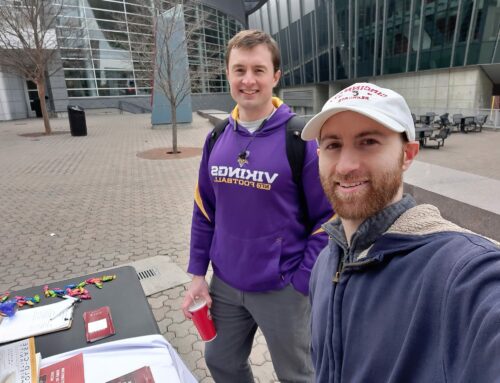
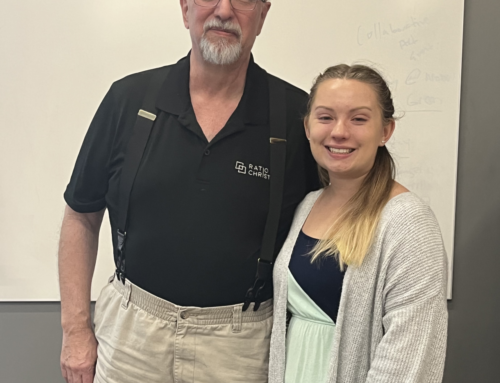
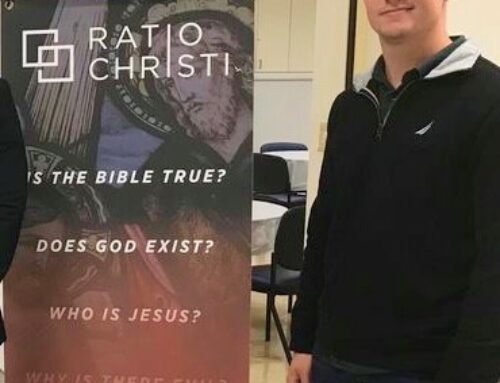
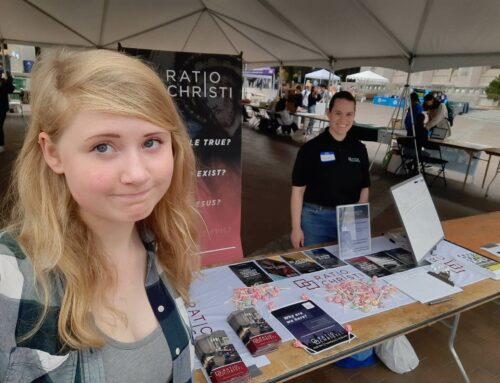

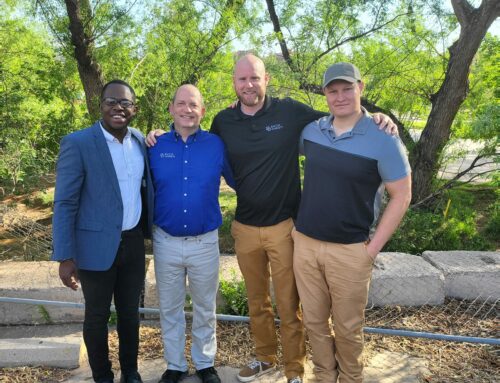
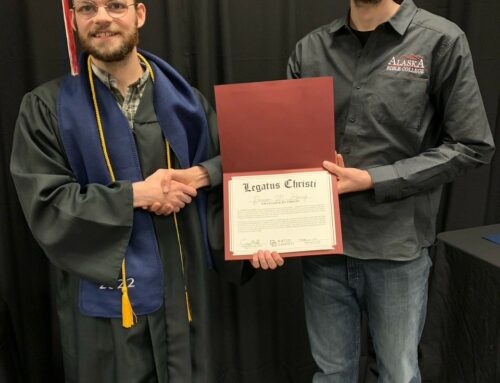

Leave A Comment